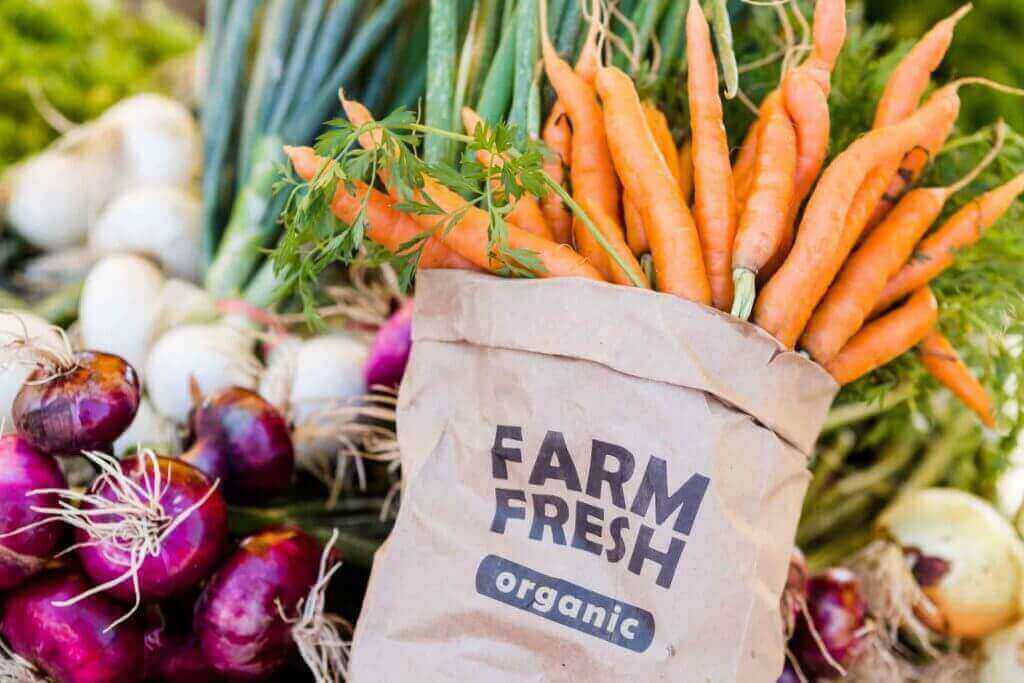👋 Click the mic button to talk to Alfred, the Todd's Seeds Gardening/Sprouting Expert – Feel free to ask him anything!
Ask Virtual Todd Anything - Click the Mic
When it comes to getting the most benefits of fruits and vegetables then you should buy locally grown ones. The benefits of vegetables that are produced in your local area aren´t just dietary, they’re environmental and economical too. Below we’ll explore the benefits of fruit and vegetables, that can only be found in locally grown ones.
Financial Benefits of Growing Locally
Keeping money in your community is one of the main financial benefits of fruit and vegetables that are grown locally. Buying direct from the supplier cuts out the middle man meaning that local farmers can retain more of their profits. These profits can then be reinvested into the farm for expansion or to support more organic farming methods.
If the farmer can expand then this means that more jobs will be created in the community. If the farm becomes large enough then it can start supplying local fruit and vegetables to local shops and restaurants. Buying local produce means creating a whole cycle of positive investment in your community. It’s also a good investment in the declining farming industry as a whole. Farmers depend a lot on the support of their communities.
Environment Benefits of Local Transportation
The environmental benefits of fruit and vegetables that are grown locally are quite considerable. Did you know that sometimes food has to travel up to 1500 miles to get to your plate? These miles are known as food miles and they make a big contribution to your carbon footprint. The transport of vegetables often includes airplanes and trucks and they need to be kept fresh with refrigeration.
This uses up a lot of fossil fuels which creates harmful carbon emissions and air pollution. Global food waste is also a big problem for the environment. When food has to travel less, the chances of it spoiling are reduced which overall leads to less food waste. When jobs are created on local farms, employees will be from the area meaning they will travel less to work. This is another one of the huge environmental benefits of vegetables that are grown locally.
Freshness of Fruit and Vegetables
The nutritional benefits of vegetables and fruits start to decrease from the moment they’ve been picked. To get the maximum health benefits of fruit and vegetables, then you need to eat them when they’re fresh. Not only are fresh vegetables better for you, but their flavor and texture is also much better. This makes them much more appealing and nicer to eat. Local farmers are usually proud to take ownership of their fruits and vegetables.
It’s in their interest to provide fresh and tasty produce because they can be held personally accountable for their products. Local food is usually seasonally grown too. Fruits and vegetables that are grown out of season often don’t have the same freshness as seasonal ones. When you buy locally you can have perfectly ripe vegetables on your plate the same day they were picked. This is the best way to get the maximum taste, freshness, and nutritional benefits of fruit and vegetables.

Some Small Local Farmers use Organic
In many cases, it’s in a local farmer’s best interests to use organic growing methods which promote biodiversity. Organic farming helps to improve the area’s ecology and strengthens the growing environment. It also reduces air and water pollution that comes from using chemical pesticides. Even when local farmers don’t use organic methods, generally they will use less aggressive pesticides.
Because they’re growing on a smaller more intimate scale they can keep a closer eye on their crops. This means that they can be less dependant on strong chemical pesticides. Supporting local farmers means supporting organic farming or at least methods that use fewer pesticides. You can be certain that organic local food won’t contain chemical pesticides or GMO crops. The benefits of vegetables that are grown organically can have a huge positive impact on our health and the environment.
Understanding GMOs
When we refer to GMOs we’re talking about genetically modified organisms. This means that their genetic makeup (DNA) has been altered in a laboratory. This is done to fruits and vegetables to improve their appearance and to make them more resistant to diseases. There seems to be some lack of scientific understanding about GMOs. In some cases, they’ve been linked to allergies and for causing irreversible damage to the environment. Even though GMOs are considered to be safe, overall the general public is suspicious about them. This is one of the reasons that more people are choosing to buy organic vegetables and seeds.
Know your Produce Pesticide Levels
Reduced pesticide levels are another one of the benefits of fruit and vegetables that are grown locally. Pesticides are chemicals that are used to stop insects from damaging crops. However, there are concerns about pesticides and their effects on the human body. Some pesticides are banned in the European Union. This is due to concerns about their carcinogenic effects and effects on fetal development and fertility. It’s hard to say just how many pesticides we’re exposed to.
Alarmingly, tests have revealed that some vegetables contain up to 18 different pesticides. And residues of pesticides can be found on fruits and vegetables even after washing. Local farmers will usually use fewer and less aggressive pesticides. This is because they’re not growing on an industrial scale so their concern is quality over quantity. Locally grown food also contains fewer preservatives because it’s sold and consumed quicker than food that has to travel. Reducing your pesticide intake is another way to max out the benefits of fruits and vegetables that are grown locally.

Locally grown food isn’t just better for your body and your taste buds. It’s better for the environment and your local community too. Now that you know the benefits of vegetables that are grown locally, it’s time to find your local farmer’s market. Eating local produce is better for your health and overall you’ll feel more personally connected to your food. By going local, you can start enjoying the full benefits of fruit and vegetables today.